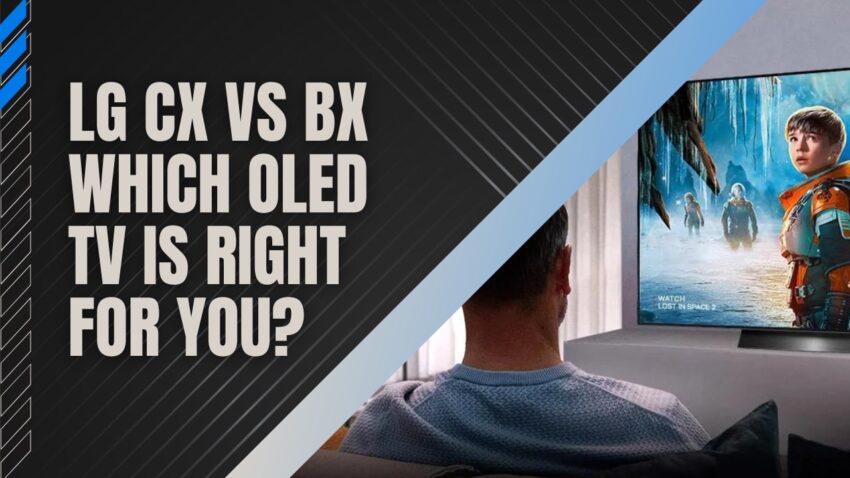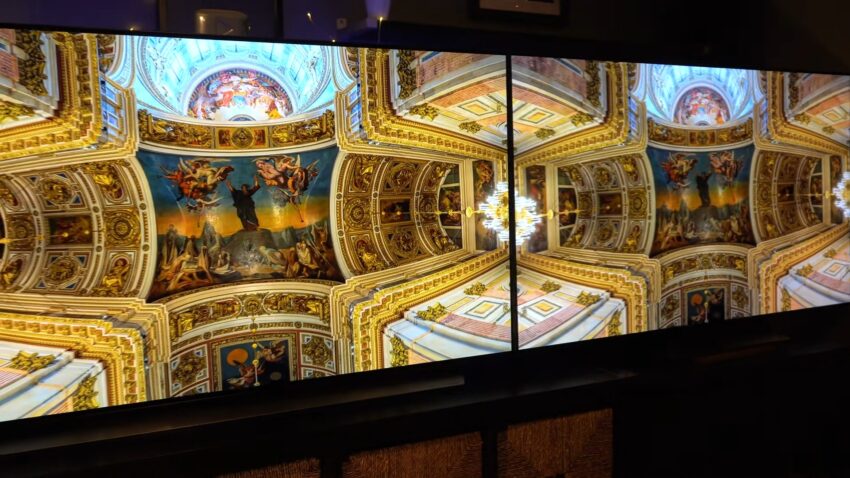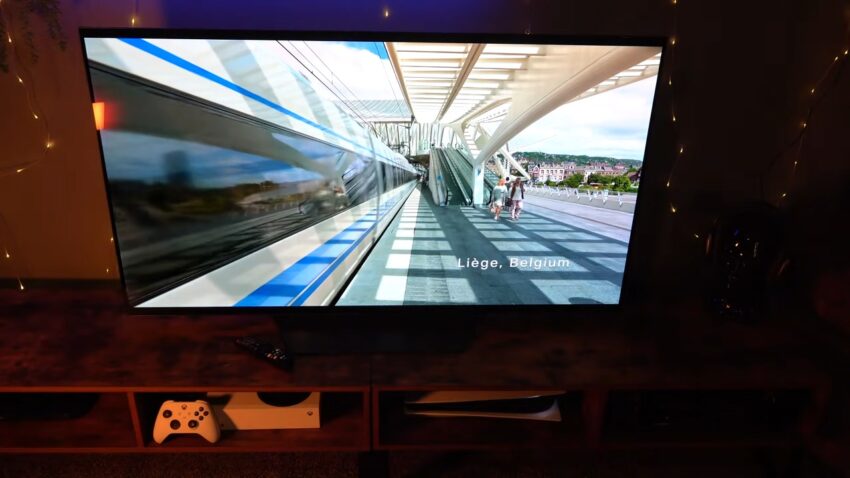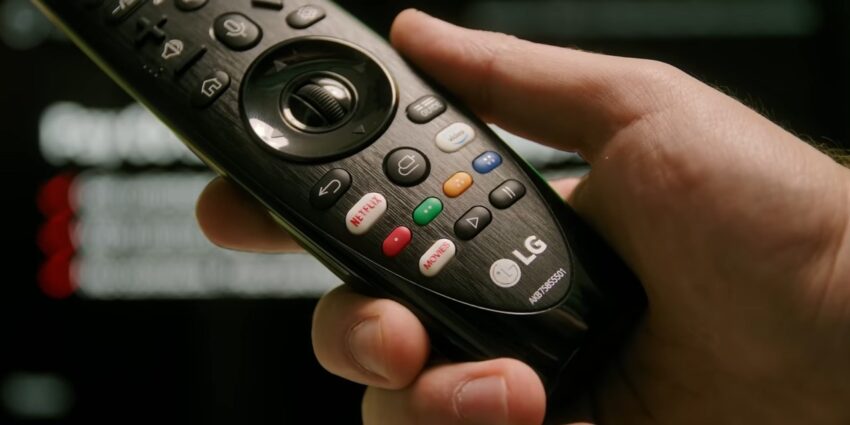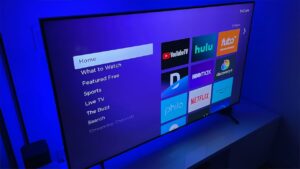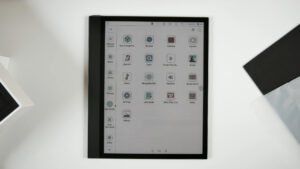OLED TVs have scored a well-known status in the market by delivering astonishing displays, broad view angles, improved contrast ratio, and more. These TVs have amended performance and come in a flat and thin design that looks aesthetically pleasing and will enhance the look of any TV lounge.
In this sequence, LG is a top-brand that has launched numerous products in different series that boast OLED technology.
It is hard to choose one from all those flagship devices. Thus, there is a battle going on called LG CX vs BX, so I decided to test both and see the winner. Let’s begin with me.
Differences between LG CX and BX
Build Quality
The LG CX is the latest and flagship model from LG C-series. It comes in a stunning black body with a thin pedestal that completes an up-to-date look. I am in love with the thin boundary of this TV which provides the user a vast display.
While purchasing a flagship TV, I suggest going for at least 55 inches to relish the picture like never before.
The TV set comes with a decent stand for placing your TV on the bench. The CX offers excellent build quality, and I am impressed that the stand is also composed of metal which sounds durable. However, the size of the stand is large, so you’ll need a large fence to place it.
In contrast, the LG BX model is a front-runner belonging to the B-series by LG. It is also called B 10. In terms of design, it is very much similar to LG CX. It comes in a very sleek black body that looks perfect but might not be coupled with your soundbar because you lose a screen area.
The stand of the BX is made of plastic material, and it is half as compared to that of CX. The quality of the stand is average. But it’s lightweight and small will provide you the leverage of placing it on your old table.
Display and Performance
The display and refresh rate mainly determine the performance of a TV set. The LG CX illustrates fantastic performance, especially for gaming and all credit goes to the 120 Hz panel. It includes various gaming-oriented features like quicker response period, VRR-support, minimum input lag, and more.
The input latency is the most notable feature which complements your gaming session. The latency time refers to the delay between command and action. Moreover, it displays HDR with a broad color gamut and has a perfect contrast ratio.
I like the darkness level of this TV set, but the brightness peaks need improvement. Thus, I don’t suggest turning on gaming mode in a brighter room.
On the other hand, the LG BX is exceptional for HDR display. It also comes with Free Sync VRR support that is defined as a variable refresh rate.
This feature is usually installed in leading devices only, and it helps the game console deliver video frames at the fastest possible rate.
In addition, the LG BS OLED TV offers low input lag and instant response time. It has a very classical and soothing display with the correct color gamut.
However, the brightness level has room for improvement in this TV set. It might not get some highlights to stand out in HDR display because of average brightness peaks.
Ports and Inputs
The CX OLED TV is equipped with multiple ports, including HDMI 2.1, USB, VRR supports, and headphones input which is an excellent inclusion for gamers. The input coupling with the 120 Hz panel at 4K display gives an irreplaceable performance. It will entertain you with clearly no impediment!
At the same time, LG BX offers two rear ports supporting the 4K resolution at a 120 Hz panel. I like the slim and even arrangement of ports, and for more help, you can seek the manufacturer’s manual. However, BX is not the front-runner in the sequence of ports.
Design and appearance
The BX closely resembles last year’s B9 model, which isn’t a bad thing at all. Its ultra-thin cutaway panel leverages OLED’s self-illuminating properties, while the primary processing components are housed in a box at the back. The stand is made of angular brushed metal, which doesn’t disappoint us.
The CX’s stand is somewhat broader than the BX’s, akin to the relationship between the C9 and its successor. Aside from that, the two models share a striking resemblance, featuring slim bezels (even slimmer on the CX) and a modest frame. Internally, both models employ LG’s sleek webOS operating system, which is among the least invasive TV platforms available.
Both the BX and CX, as well as the rest of LG’s 2020 OLED lineup, come equipped with HDMI 2.1 ports and complete support for their capabilities. This allows for 4K resolution at the maximum 120Hz panel capacity, Variable Refresh Rate, Auto Low Latency, and everything else necessary for the PS5 and Xbox Series X.
This is particularly notable for the more affordable BX, as it is at the lower end of LG’s OLED offerings but still provides top-notch connectivity options for the coming years. This level of future-proofing is not even found in the pricier Sony A8 model.
Additionally, both TVs include G-Sync and the anticipated Freesync support for PC gamers. On a related note, they also incorporate LG’s ThinQ AI engine, which enables compatibility with Alexa and Google Assistant.
Image quality
The distinctions between the panels become noticeable here, although they require close examination. Both boast OLED’s superior contrast benefits and impressively cover HDR and SDR color ranges.
The first difference lies in the processor, with the CX featuring the third-generation a9 picture engine, identical to the one found in the GX, WX, and ZX models. The BX, however, is equipped with the lower-tier a7 gen 3 processor, resulting in somewhat less refined handling of darker scenes and inferior AI upscaling. This discrepancy might be more evident in the 65-inch model, where any flaws are likely to stand out.
This is the sole fundamental difference between the two processors; both excel in producing stunning visuals and offer features such as de-judder and black frame insertion to reduce motion blur.
On the BX, using black frame insertion might not be a priority, as the tests we’ve seen indicate that its panel is already on the dimmer side of OLEDs.
The BX reaches a peak brightness of around 500 nits, significantly lower than backlit QLEDs and a clear step down from the CX’s 650 nits (in Cinema mode). Both models support Filmmaker Mode for a more authentic experience and Dolby Vision IQ for brightness adjustments based on ambient lighting conditions.
The CX’s additional brightness and enhanced handling of dark scenes result in a more spectacular HDR experience compared to the BX. Although the CX’s performance is slightly superior, the difference is not game-changing.
FAQs
Is the LG BX bright enough?
There is no doubt that LG BX delivers a fantastic display with a broad view angle. I like the darkness level of this TV, but brightness peaks could be improved to provide a better result even in sunnier rooms. Some highlights do not get prominent enough on the screen of this OLED TV.
Why is LG OLED the best?
I must say that OLEDs beat the LCDs or even QLEDs. It brings an outstanding display with a perfect contrast ratio and all thanks to its pixel levels. Today, LG is a top brand that has embraced OLED technology in its flagship devices like C9, CX, and BX.
What are the disadvantages of OLED TV?
Many reviewers kept talking about the pros of OLED TVs, but every technology does have a negative side. The main disadvantage of OLED is its age, as the panel relied on the organic LED. Color degradation is possible in any case. This fact will eventually affect the brightness level and balance for the worse.
Final Words
We concluded that LG CX boasts an infinite contrast fraction with a broad view angle and a better color gamut that supports the improved display. However, the devices need improvement in brightness peaks.
With the flip of a coin, LG BX comes with perfect reflection handling and the quickest response time, facilitating excellent performance. Besides, it is at constant risk of burn-in.
In a nutshell, I think that LG CX is the winner of this battle because it boasts the least lag time, HDMI ports, all-metal construction, and more. It will smooth your gaming and HDR experience like no other. Still, you can go for LG BX, which accounts for a comparatively lower price tag.


